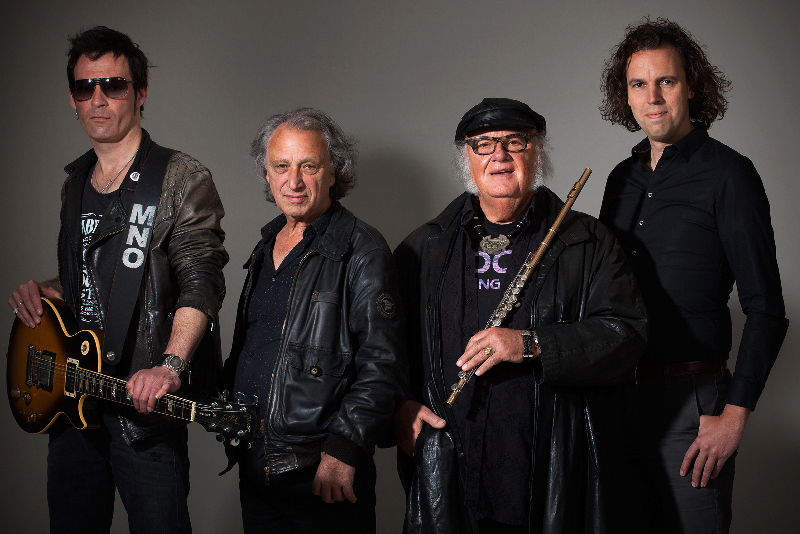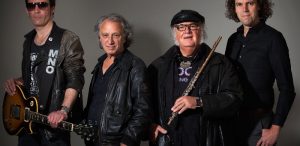
The story of Focus’ exceptional hit, ‘Hocus Pocus’
On 10th February, 1973, the front cover of Melody Maker read: ‘Double Dutch! Focus crash charts with two hit singles and two albums!’ Seemingly out of nowhere, the four piece from Amsterdam had captured the imaginations of the British public – their 1971 LP Moving Waves sitting one place above its 1972 follow-up Focus 3 on the publication’s ‘Pop 30’, and their tracks Sylvia and the single version of Hocus Pocus having also broken into the Melody Maker singles chart.
But how was it that a progressive rock band, drawing from classical music and hard rock, favouring yodelling over vocal conventions, had made such an impact with Hocus Pocus? A catalyst to the song’s first wave of success was undoubtedly Focus’ second appearance on the Old Grey Whistle Test, broadcast in December, 1972. The band performed a rendition of their single Sylvia that segued into Hocus Pocus – its awe-inspiring licks and Thijs van Leer’s seasonal adaptation (“we’d like to wish you a merry christmas, and also, a happy new year,” his spontaneous lyrics stated,) resonating with the viewing audience.
The version with which the band had opened Moving Waves was at a gentler pace to the single version, released a year later. Compositionally, it was still fantastic, but it didn’t quite have the pace and energy to get people’s heads banging. The version performed on OGWT conformed to the pace of the single, Jan Akkerman’s blistering riffs and clever chord progressions thrusted forward by the sheer power of Pierre van der Linden’s drumming.
Another key element was the band hitting the road for their first UK club tour in January of ‘73. The group played 21 shows in 23 days, including a Manchester show (from which you can check out a cool retro programme here) and concerts at numerous other UK venues. They blew audiences away and when Hocus Pocus became the surprise hit it was, that opened the door to even bigger shows, TV recordings and festivals.
Thijs van Leer, the band’s flautist, keys player and vocalist, remembers how the composition was written. In 2010, he told FaceCulture that it came together ‘in a wing of the Groeneveld castle in Baarn, Netherlands…a meeting place for all kinds of artists, especially cinematographers.’ He told Louder that the band’s songs were ordinarily written over many months, but that Hocus Pocus was an exception, having been, ‘composed instantly, during a rehearsal.’ Adding, ‘It was just a case of going with the flow. First came the genius guitar riff from Jan Akkerman, then the four bar drum solo and finally the yodel.’
In 2010, the song was centre of attention once again, as Nike selected it for their elaborate Write the Future campaign, coinciding with the 2010 World Cup. The three-minute cut used lengthy, unedited passages of the track – its drama and energy perfectly accompanying the fast-paced, (somewhat unrealistic) on-field action. Van Leer called the piece ‘‘a gift from heaven,’ seemingly impressed by the appropriate and impactful use of the composition. The single was re-released and charted once again.
In embracing eccentricity, challenging audiences to enjoy something outside of pop’s conventions and demonstrated their undeniable excellence as musicians in the process, Focus succeeded where few other bands might have. Today, two original members continue with the four-piece: drummer Pierre van der Linden and flautist and keyboardist, Thijs van Leer. The band play live at Band on the Wall on 27th November, supported by another seventies rock stalwart in Edgar Broughton. If you dig the track, you can check out unedited footage of the Old Grey Whistle Test recording, which features an uncharacteristic false start from the group, below.







